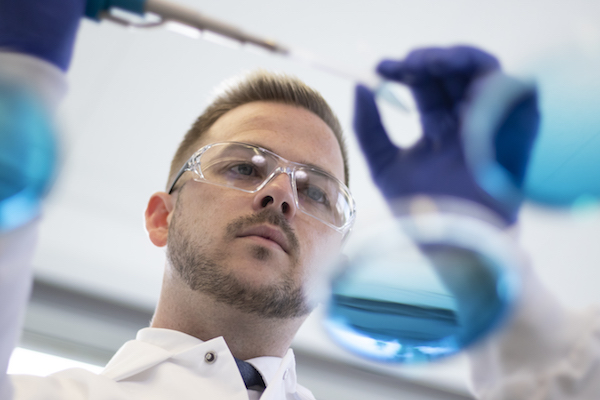Laboratory Rotations

Laboratory rotations are a crucial part of a student's academic experience, providing an opportunity for first-year students to spend 10-12 weeks conducting research, or “rotating,” in the laboratory of one or more Scripps Research faculty members.
Lab rotations are designed to assist students in identifying the most beneficial research and mentoring environment in which to complete their graduate studies. They also give the students first-hand experience in a variety of techniques and approaches to biological problems.
There are several questions that students should ask themselves during their rotation(s). They include:
- Am I excited about the ongoing research projects in this lab?
- What is the lab structure? Is it a large lab with many postdocs and senior lab members? Am I more comfortable in a large lab or a small lab environment?
- What is the management style of the principal investigator (PI)? Is he or she very hands-on and actually doing experiments in the lab? Do I work better in an environment with more independence?
- How have other students fared in this lab? How many publications have they had? What is the expectation for publishing from the PI? How long does it typically take for students to graduate from this lab?
Students may begin lab rotations as early as the summer immediately preceding the fall academic term. While all first-year graduate students are required to complete at least one rotation, students have the opportunity to rotate through multiple laboratories.

